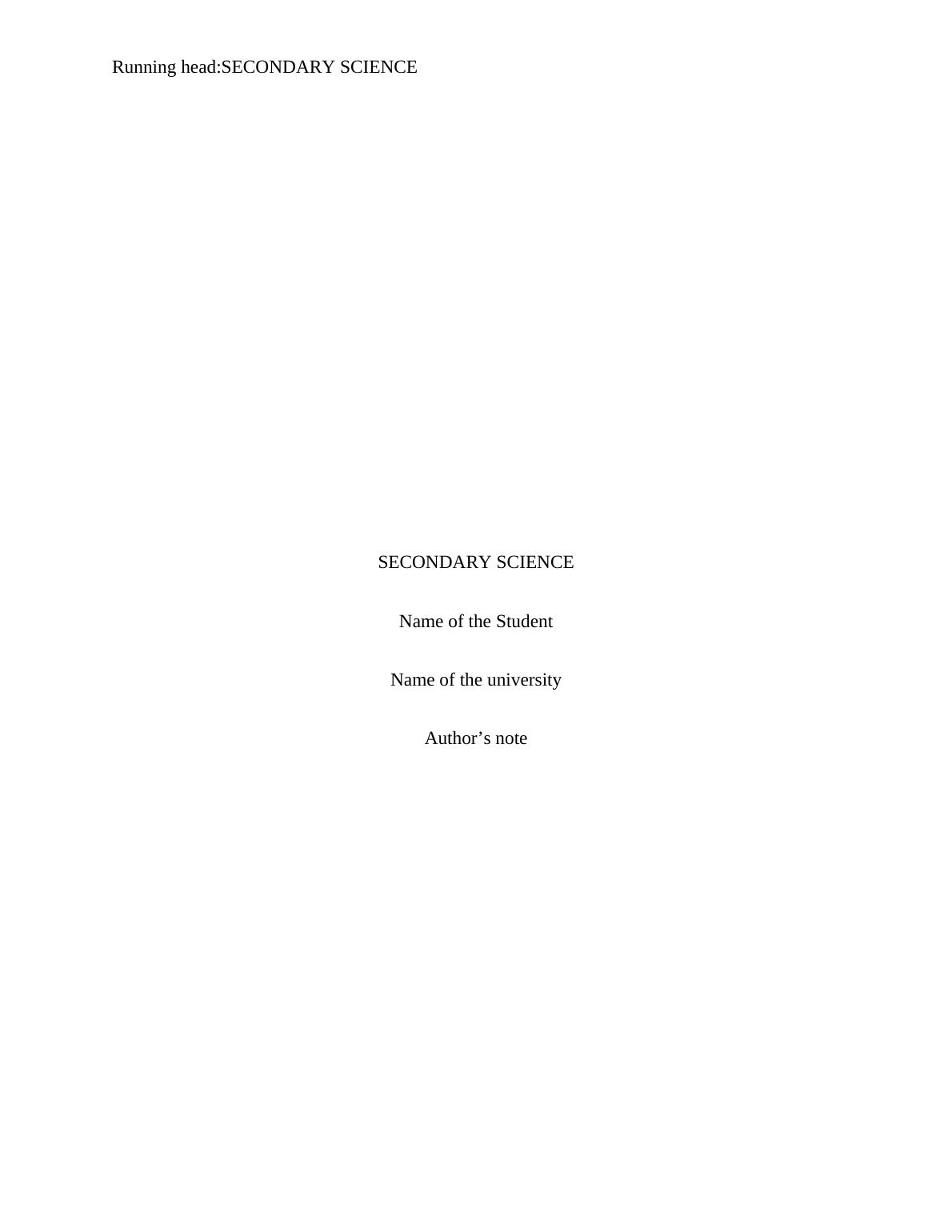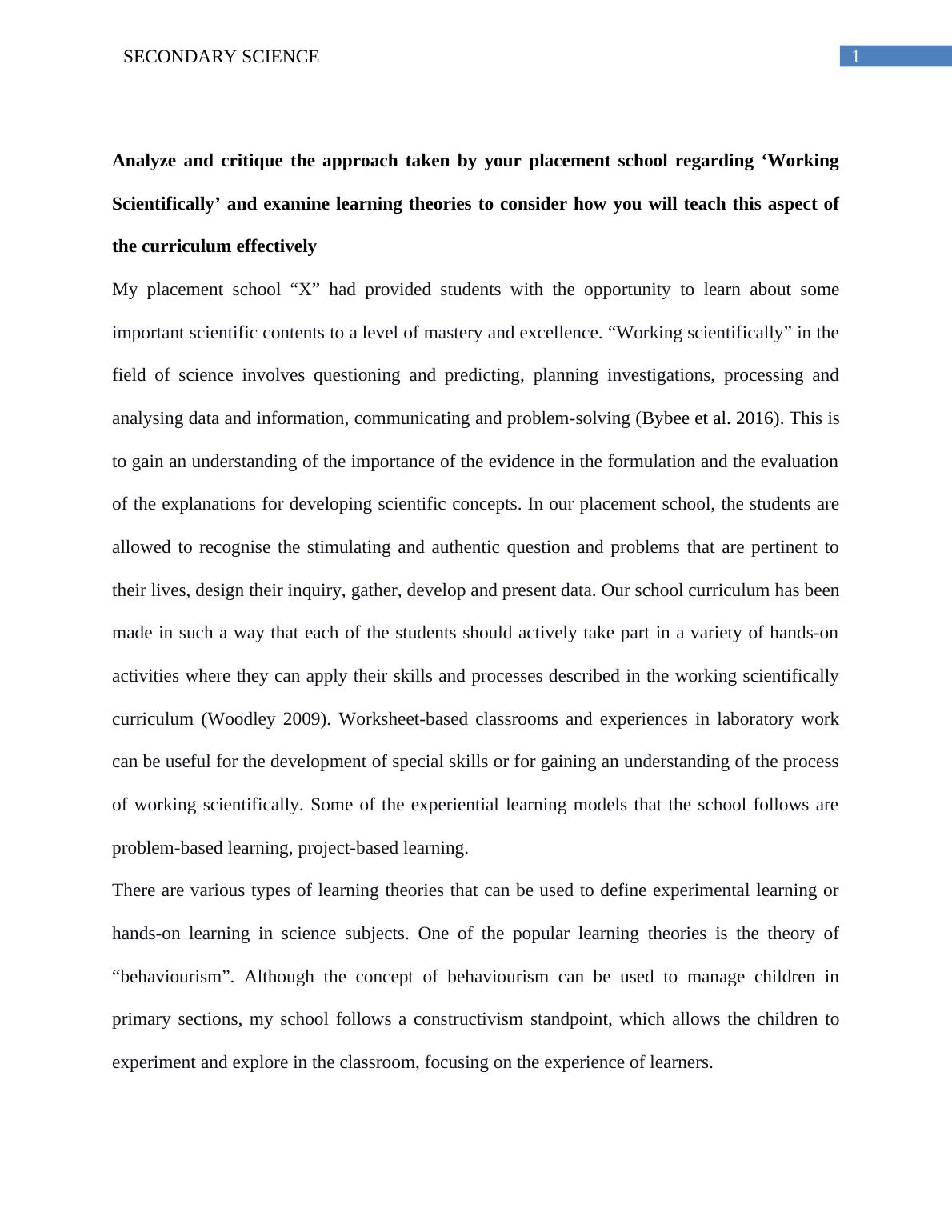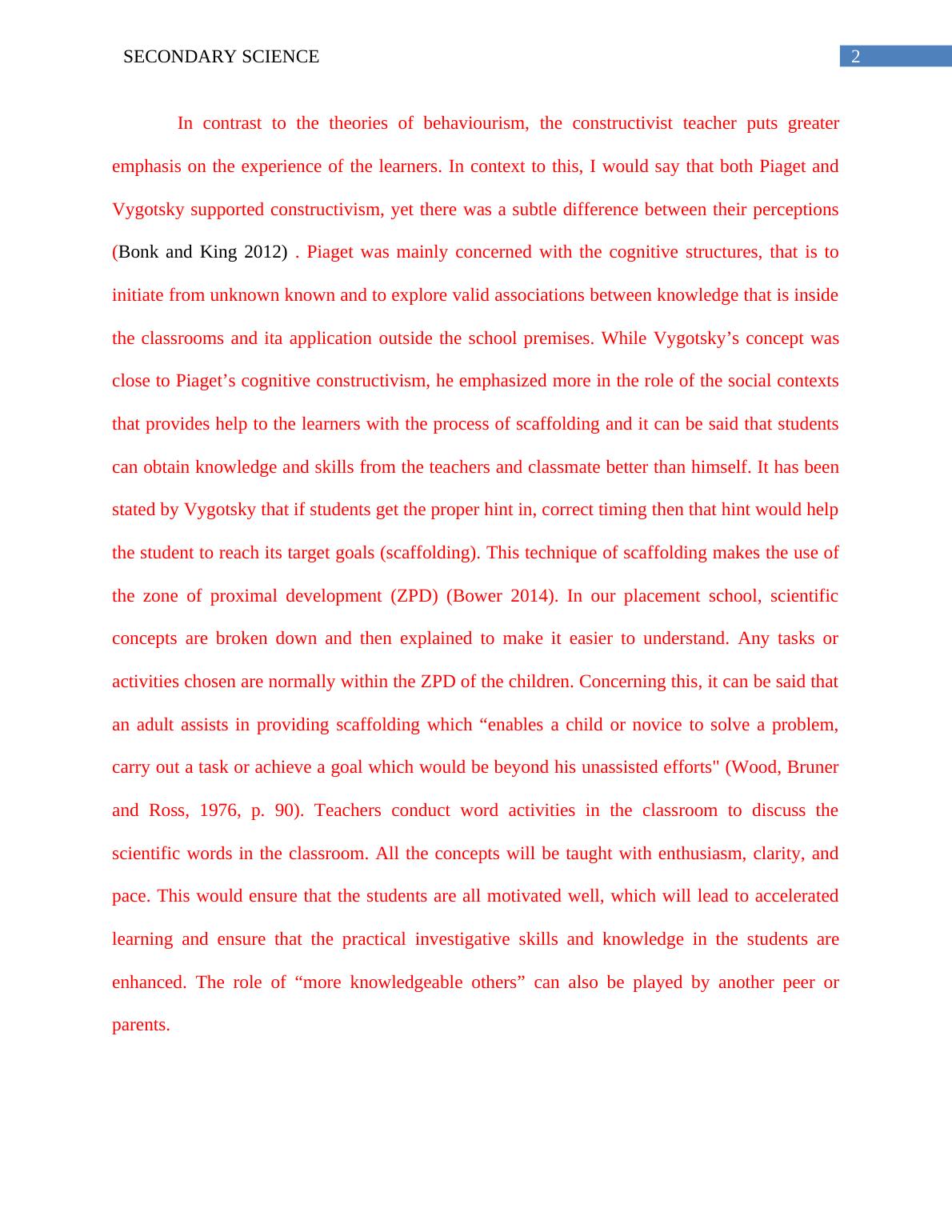Assesment Report on Working Scientifically
Added on 2022-09-06
9 Pages2071 Words16 Views
End of preview
Want to access all the pages? Upload your documents or become a member.
Piaget’s theory of Cognitive Development: Extent to which it supports skills based learning in primary schools
|15
|613
|141
Understanding Vygotsky's Theory and Its Application in Classroom
|3
|557
|55
Planning Effective Learning Environments for Learning and Teaching
|7
|1502
|1
Piaget’s Theory of Cognitive Development
|1
|907
|97
Summative Assessment: Core Educational Theories, Lesson Plan, and Reflective Cycle in Dentistry
|16
|5196
|39
Reflective Journals on Learning, Theories of Learning, and Problem Solving Approach
|7
|1449
|195



